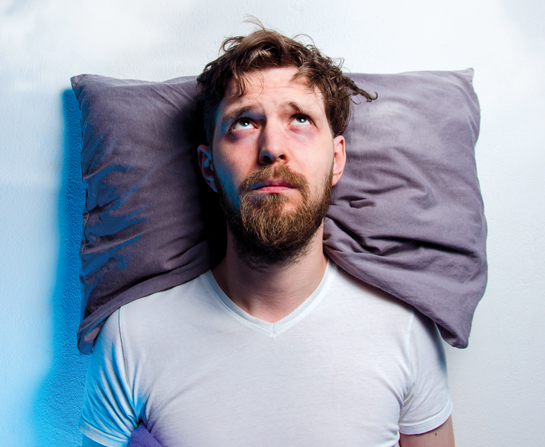WORDS PANK JIT SIN
Dr David R. Samson, Ph.D. Assistant Professor in Biological Anthropology University of Toronto Mississauga, Canada |
We are often told we need 8 hours of sleep every day. Do you wonder where the number comes from? Well, it seems the number is quite random. There is no definitive length of time for sleep, says anthropologist
Being a person who studies human and human behaviour, Samson said he could not find evidence for the amount of sleep a person needs. “Most numbers seem to have been given arbitrarily,” he says. As primates, we sleep the least amount compared to other members of the order. However, by comparing human biology to those of close primates, he arrived at an estimated figure of about 7 hours per night.
As humans enter the modern age, we tend to forget that our biology has not caught up with the changes brought about by modernity. For instance, our primate cousins are used to almost pitch-black nights. In today’s scenario, pitch-black nights are a rarity—at least in urban areas— since we have lights in the street, hall and room. To compound matters, our computers and mobile devices also emit blue light, which is a component of sunlight. However, being exposed to blue light tricks our biological clock into thinking it is still daytime and thus not the right time to fall asleep.
The effect of modernization on people can be clearly seen when compared to populations still living in natural surroundings ie, without technology or pollution. In his studies of the hunter-gatherer Hadza people of Tanzania, Samson discovered they slept about 6.4 hours each night. While this isn’t a long period of sleep, what’s important to note is that these people have a very strong circadian rhythm, which means they sleep and wake up at the same time each day. This rigid circadian rhythm may be the reason behind their relatively long lifespan— averaging about 60 plus years. Samson said the lifespan of 60 over years may seem rather short to city dwellers but for people with no access to basic healthcare and vaccination, it is a long lifespan.
IS INSUFFICIENT SLEEP THE SOLE SLEEP DISORDER?
Sleepiness is just one of many circadian rhythm sleep disorders (CRSD) including insomnia or the inability to fall asleep. We have been exposed to the dangers of sleep apnoea, which is frequent stops and starts in breathing during sleep, which disrupts restful sleep. The ones we rarely hear about are circadian phase disorder and seasonal affective disorder. Circadian rhythm disorder is the type of disorder usually affecting adolescents and college students, where their night owl tendencies disrupt the internal body clock. As a result, the affected individual experiences insomnia at night and excessive sleepiness in the day which lead to disruption to work, school or even social interactions.
Seasonal affective disorders are less likely to affect Malaysians living in the tropics as we do not have clear transition of seasons similar to those in temperate countries.
STEP INTO THE SUN TO ‘WAKE UP,’ TURN OFF YOUR HANDPHONE TO SHUT DOWN
Many individuals go to work or school early and stay indoors until late evening and thus receive little natural light. As a result, the body’s circadian rhythm finds it hard to detect the difference between day and night times.
Light in the blue wavelengths boosts attention, reaction time and mood. Thus, Samson suggests that Malaysians have at least one meal (breakfast or lunch) outside under the sun. He says: “It is easy for Malaysians to eat in the open. In temperate countries like Canada, sometimes we have only 1 or 2 hours of sun a day.”
When winding down to sleep, it is best to shut down all screen devices, especially mobile phones, which emit blue light. When we constantly bombard our bodies with blue light, we find it hard to wind down and fall asleep. This is due to the blue light’s ability to suppress melatonin secretion.
Melatonin is important as it signals our body to go to sleep. Additionally, it is an effective antioxidant that inhibits the polymerization of soluble beta- amyloid protein into insoluble amyloid fibrils that are associated with Alzheimer’s disease.
Sleep is also the time when our glymphatic system—a waste clearance pathway for our central nervous system comprising our brain and spinal cord—performs its cleaning role by removing the toxic buildup of chemicals during our waking hours. The glymphatic system was only discovered in 2012 but is already recognized as an important system for our brain to cleanse itself.
Among all the species of primates, human sleep duration is among the shortest, noted Samson. This could be a reason for humans’ vulnerability to Alzheimer’s disease—we don’t sleep enough to clear toxins out of our brains.
It’s not all doom and gloom as Samson said in general, people are sleeping longer compared to just 40 years ago. Data from the UK suggests people slept on average 43 minutes longer than people did during the mid-1970s. But we need to work on a good circadian rhythm. HT
If you like this article, do subscribe here.

